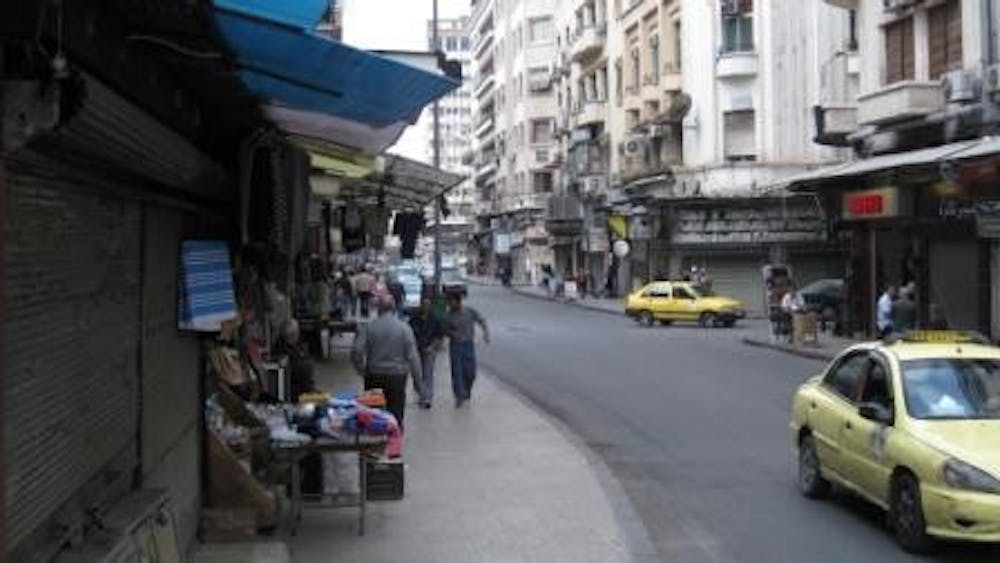BLOG: Spring Break journal
In the past, I’ve spent spring breaks in Chicago, Florida and Jamaica.
But while I’m in the Middle East, I thought it would be a good idea to see what else is in the region, outside of Jordan and Israel (which I visited in 2008). So a couple weeks ago, I went on a ten-day trip to Syria and Lebanon with five other study abroad students in my program.
I kept a daily journal of my experiences, which I hope you will enjoy as they’re posted to this blog.
Day 1 (Thursday, March 25)-Getting into Syria — easier than it sounds I got out of class at 4 p.m. and we departed from Amman at around 7:30 p.m. Our group of six (five guys, one girl) took two separate cabs north to the Syrian border. The name of our driver’s name was Saddam Hussein (I’m not joking; he showed us his ID). We arrived a few hours later and began what we anticipated to be a long wait. Why? Because the Syrians are infamous for making Americans wait an exorbitant amount of time — often several hours — to receive a simple, one-entry visa at their borders.
We intentionally arrived late in the evening, as we’d been told that the wait is sometimes less when arriving at night. Our visa applications were approved in about three hours, which is actually a short wait for a group of Americans. My friend’s group, by contrast, arrived at the border at 3:30 p.m. and waited nearly eight hours before receiving their visas. They had roughly the same amount of people as our group; they were the same age and from the same program.
But for some reason, their wait was considerably longer.
As for me, I was just glad to get in. After visiting Israel in 2008, I needed a second passport — without an Israeli visa stamp — to get into Syria. (Many countries, including Syria and Lebanon, do not recognize the state of Israel and do not permit entry for Israelis or for people who have Israeli stamps in their passports. Jordan and Egypt, two of Israel’s neighbors, have made peace with them and are thus exceptions.)
Unfortunately, a second passport doesn’t guarantee entry, because Syrians can sometimes refuse persons who are even suspected of visiting the Jewish state, and the second passport is a dead giveaway to any scrutinizing eye: it has a two-year expiration date, instead of the normal 10 years, and my Jordanian entry stamp says it’s been moved (i.e., moved from the original passport).
After paying $75 and going twice to the American Embassy in Amman and once to a Jordanian government office, I still wasn’t assured clearance. But I got in, and we quickly hopped on a bus that took us from the border to Damascus. We arrived at our hotel at 3 a.m. and called it a night.




